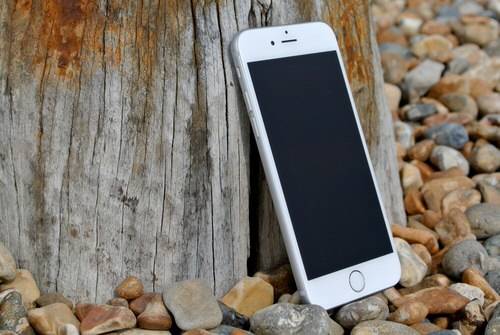Most smartphone plans come with data and internet access, so why would you need a separate home internet connection through a cable or DSL connection? Although it seems redundant, there are some reasons to get home internet.
If you’re like most people, you can’t function without the internet at home. Having internet access outside the office has become more of a utility than a luxury in the last decade, especially if you manage social activities with groups, meetups, or community centers. Most people don’t connect solely over phone calls and, instead, prefer using email and social media to keep in touch and make plans.
Even though you need internet in your house, that doesn’t mean you necessarily need a separate internet connection. If you own a smartphone, you can use your plan’s data to access the internet or get a plan with more data if you don’t already have enough. The difference is that with a separate connection, you’ll access the internet via Wi-Fi through your phone rather than directly using your phone’s data. Both are workable options for getting a connection, but they differ in terms of cost, speed, and reliability.
Nine Reasons You Need Home Internet
If any of the following situations apply to you, it’s safe to say you’ll benefit from having a separate home internet connection in addition to your smartphone’s data plan.
1. Home internet is affordable.
When it doesn’t cost much to get an internet connection in your house, why not go for it? If you can afford it and have a use for it, there’s no reason not to get it.
It’s understandable if you want to avoid paying for yet another internet connection. A smartphone is an investment. You probably paid a good amount of money for your device, a durable, rugged phone case, and monthly plans aren’t always cheap. However, if you can get a home internet connection without overpaying, why not get one so you don’t have to worry about being charged for using too much data?
2. You need a high-speed connection.
If speed matters, and you can’t compromise here, then you need an internet connection in your house. No matter how fast the internet connection on your phone gets, it won’t compare to the fastest home connection speeds offered by the top cable internet companies. All wireless internet connections are slower than wired connections by default. Although some cell phone connections can get pretty fast, they still don’t compare to home internet.
For those still using 4G LTE, you can expect download speeds of between 5-12 Mbps. If you have access to a 5G device and network, you can get download speeds of up to 450 Mbps. With other devices, like the Meshforce M7, you can get up to 867 Mbps (theoretically).
When it comes to home internet, Xfinity’s download speeds range from 50 Mbps to 6 Gbps. T-Mobile’s home internet download speeds are still fast, but slightly slower, ranging from 33-182 Mbps.
Why the difference? T-Mobile only offers a fixed wireless connection. Wireless connections are always slower than if you were to use a cabled connection. When your internet connection is wired, as with Xfinity, you have the option of using a router to create a Wi-Fi connection, but you still have the option of using an Ethernet cable. You don’t have any hardwired options with a fixed wireless connection.
For most people, speed won’t be an issue. Hardly anyone would complain about any of the speeds mentioned above. However, if you need to perform work that requires super high speed, like downloading and uploading massive files on a regular basis, you probably need home internet.
3. You live in a remote area with poor or no cell reception.
No matter how great your smartphone is, even the fastest internet connection can’t overcome the problem of no service. If you live in an area that doesn’t get much or any reception at home, the only option you have is to get a home internet connection.
There are many rural areas that don’t have a lot of cell towers nearby, and some areas don’t even have the infrastructure for fiber optic cable internet connections. However, as long as you have a physical landline phone connection, you can at least get DSL in your home. Or, you can buy the equipment for satellite internet, like Starlink, if it’s available in your area.
4. You need to work on a standard laptop or desktop.
One of the biggest advantages of home internet is being able to broadcast a Wi-Fi signal throughout your house. If you need to work on a desktop or laptop computer, then home internet is a must.
It’s possible, but not practical, to use your smartphone as a hotspot or tether your internet connection to another device. Tethered connections via USB and Bluetooth tend to be slow, and it’s not easy to set up. While many people use both of these methods to get online at home, it can be a frustrating experience.
When you have a separate internet connection in your home, you only need to plug in an Ethernet cable or connect to Wi-Fi to get online from your laptop. If you use DSL, you have to set up a PPoE connection, but that’s just entering a username and password. It’s still relatively easy compared to tethering.
5. A mobile hotspot didn’t work for you.
If you need internet outside of what your smartphone can provide, you may have looked into hot spots. At first glance, they seem like a great idea. You get this little device that you can take anywhere and use with any device, even your phone if you want to preserve your data. However, there are several downsides to hot spots.
First, you have to pay more money upfront to buy a hot spot that is capable of higher speeds. Then, you have to pay a monthly fee for the connection. This can be done on a month-to-month prepaid basis, or you can sometimes pay for a full year in advance and get a discount. However, the prices aren’t that cheap and the speeds can be pretty slow.
If you tried using a hot spot and that didn’t work out for you, consider getting home internet. Your connection and speed will be more reliable and you’ll probably end up paying less.
6. You play games or stream movies often.
Smartphones are more than capable of streaming movies and running games, but that doesn’t mean your experience will be smooth. Even when your device has the resources required to stream movies and run games, that doesn’t mean your internet connection can keep up the pace.
If you’ve noticed your movies or games slowing down, glitching, getting frozen, or crashing your smartphone, it could be caused by a slow internet connection. If this is your experience, and you want to play games or binge-watch Netflix and YouTube videos, get a home internet connection fast enough to meet your needs. Also, if you’re the only one using the connection, you can get away with a slower speed than you might think, which will cost you less per month.
7. You need multiple, simultaneous connections.
Do you have multiple people in your home who want to stream movies and access the internet for other purposes? If everyone in your house is using their phone’s data to use the internet all night long, it makes more sense to get a home internet connection, connect a router, and broadcast the Wi-Fi signal for everyone to share.
8. You plan to rent out a room or area on your property.
If you’re planning on renting out a room in your home, or another building on your property, it’s a smart move to get a home internet connection so that you and your tenant can share the Wi-Fi. Most renters expect the internet as a perk, and it’s actually a great way to get a renter to move in quickly.
Instead of charging for rent plus internet, include internet in the rent and just bump the price up by around $20-$30 per month. For example, if you’d normally charge $550 for the room, rent it for $570 with internet included.
9. You pay too much for streaming TV services.
If you’re fed up with how much you pay for streaming services just to watch television and movies, consider getting a home internet connection to get TV and internet in one. You can also connect your game systems, tablets, and phones to the Wi-Fi and avoid using your phone’s data.
Is Home Internet Worth It? Absolutely.
Using the internet connection on your smartphone is convenient, but it can be costly and slow. It can also be inconvenient if you need a better connection that just isn’t possible with your device.
When you get home internet, you’ll not only be able to consolidate your TV and internet bills into one company, but you can usually get a good new customer deal that will last for a year or two. You’ll have the ability to share your connection with the rest of your household through Wi-Fi, and you’ll probably end up saving money in the long run.





